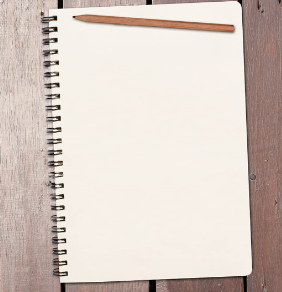4,the+形容词最高级,有时会包含让步的意义,可译为“哪怕是”“即使”如:
The shortest cut would take us 30 minutes to get there.
去那里即使是走捷径也要花30分钟。
The greatest influential will die.
即使是最有影响力的人物也终有一天会死亡。
5,the more…the more…译为“越…越…”,这个句式的难点不在英译汉而是在汉译英上,请看如下例句(选自《张培基英译现代散文选》)
①一个人年龄越大,走过的地方当过的职务越多,相识的人理该越增加了。
The older one gets, the more widely traveled one is and the more work experience one has, the more acquaintances one is supposed to have.
②愈是颜色艳丽的花愈缺少芬芳。
The showier the flowers are, the less sweetness they have.
③因为越是有年纪的人,他的学识经验也就越丰富,大事业正需要这种人撑持。
Because the older one is, the more knowledgeable and experienced he is and therefore the more indispensable he is to a great cause.
以上三例都是比较复杂的the more 结构,这个句式用起来有些绕,需要我们多加练习。下面来看the more, the more的在英译汉中的几种变体:
④I do the worse, the more I practice.

此处是将主句和从句的的位置互换,意同The more I practice, the worse I do.
⑤The sooner,the better.
越快越好。(省略主语和动词)
⑥More haste,more speed.
欲速则不达(省略the)
6,all the +比较级+原因,此处的all = much 作用是加强语气,可以不译,the +比较级意为“更加,愈发”如:
①The very compactness of the cottage made it all the more snug and appealing.
正是村舍的小巧紧凑让其更为温暖舒适,也更有吸引力。
②The living room is decorated in pale colours that make it all the more airy.
起居室装饰成淡雅的颜色,显得更加宽敞明亮。
7,(1)much (still)more用于肯定句之后,意为“更加”如
I like drawing,much more singing.
我喜欢画画,更喜欢唱歌。
(2)much (still) less 通常置于否定句之后,意为“更不用说,更何况”如:
I don’t like drawing,still less singing.
我不喜欢画画,更不用说唱歌了。
五,副词+形容词的译法
副词和形容词是英语中比较灵活的两类词,用好了可以使整篇文章“活起来”,比如下句“一个合理编列的课程表,犹如一个营养均衡的食谱,里面各个项目都是有益而必需的,不可偏废,不可再有选择。”译为A properly arranged school curriculum, like a cookbook for a nutritionally well-balanced food, must include all the useful and indispensable courses-courses which are equally important and obligatory(选自《张培基英译现代散文》)。如果没有“副词+形容词”的使用,句子的简洁度将会大大降低,下面我们具体讨论一下“副词+形容词”结构的翻译方法,并以此为跳板,将副词的翻译一并讨论了。
(1)将副词转换为形容词,使用转折连词或副词加以连接这种方法尤其适合使用了矛盾修饰法(oayntor}m)这一修辞手段的表达。例如:
As he began sprinting crown the runway, he felt wonderfully different, yet familiar.
当他冲向跑道时,那感觉奇特无比,妙不可言,却又如此熟悉。
(2)将副词转换为形容词,使“副词+形容词”结构转换为两个形容词的并列结构:根据需要,有时可以添加顺承并列连词加以连接
例如:
The young singer was pleasantly surprised when waves of cheering broke over her at the end of her first performance.
那位年轻歌手首场演出结束时,台下响起了雷鸣般的喝彩声,使她又惊又喜。
(2)将形容词转译为名词,副词随之可转译作动词,构成句子的主语和谓语,例如:
He is supervising strong.
他的强壮出乎我的意料。
有时副词(通常是表示方位的副词)也会转译作动词,如:
Open the window to let some fresh air in.
打开窗户让新鲜空气进来。
(3)将副词译作名词,使之与后面的形容词构成主谓结构,这种”偏正转主谓”的翻译方法是很常见的,
例如: One who overrates physical training while dreaming of living a long life must be mentally unbalanced.
一个人如果天天望长寿如大旱之望云霓,而又绝对相信体育锻炼,则此人心态恐怕有点失常…(选自《张培基英译现代散文》)
以上我们讨论了形容词叠词以及比较级还有其与副词搭配时一些翻译方法,译好形容词也是确保译文质量的一个十分重要的环节。不论是英译汉还是汉译英,形容词处理得好将会使你的译文上升一个新的高度哦。







